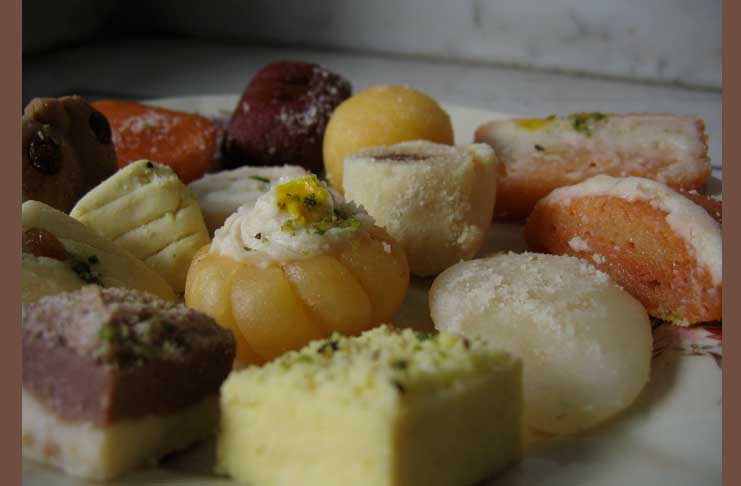…Macarons. The French desserts that look like psychedelic oreos, are crisp meringues of sweetened egg whites and almond flour sandwiched around a ganache, buttercream, or fruit puree. They come in dozens of flavors like raspberry, lemon, pistachio, chocolate and caramel, and even some unusual ones, like foie gras, white truffle, rose and violet. Macaron bakers pride themselves on fashioning distinctive colors and sometimes dustings of powders to distinguish their flavors, and their visual appeal is pretty wild.
But it’s the texture of the macaron that makes it truly unique. The crunch is subtle — unlike, say, a potato chip — and the fillings’ moisture helps soften the interior of the meringue to a chewiness. When you bite into it, the shell cracks and dissolves on your tongue, you chew, the filling melts, and the flavors announce themselves.
The origins of the macaron aren’t entirely clear. For decades the only flavors of macaron were chocolate, vanilla, coffee and raspberry, until Pierre Herme, a French pastry chef pioneered bold new flavors — like rose, olive oil and ketchup, in the late 1980’s.
Since then, France has witnessed a macaron explosion that has, in the last several years, gone international. More and more coffee shops and grocery stores are selling versions on both sides of the Atlantic. A stall recently opened in London’s Harrod’s department store, and since 2007, French McDonald’s have been selling them cheaply at McCafes, their in-restaurant cafes. In the U.S., Whole Foods, Trader Joe’s and even Starbucks have begun offering packaged versions of the macarons. [Salon]
However, if you want a freshly-baked macaron, the Street Sweets truck has them at times, but you better be quick. As Grant Di Mille told me in our recent interview, they fly off the shelves.
